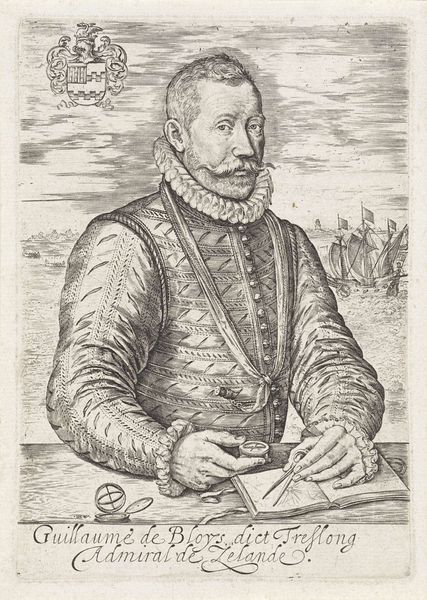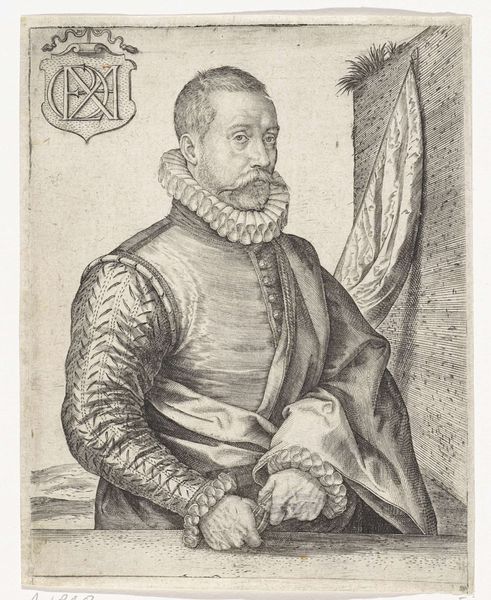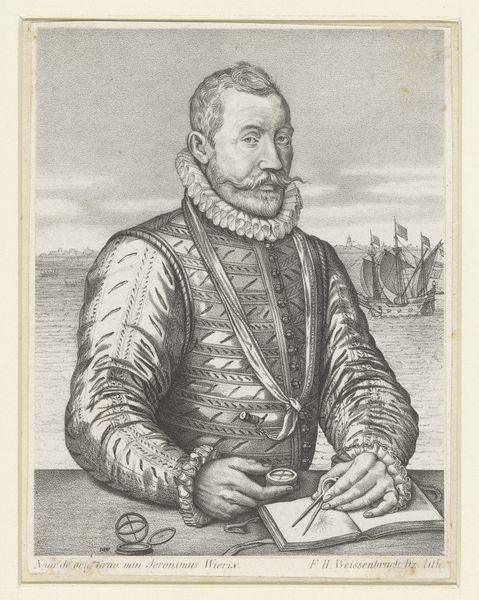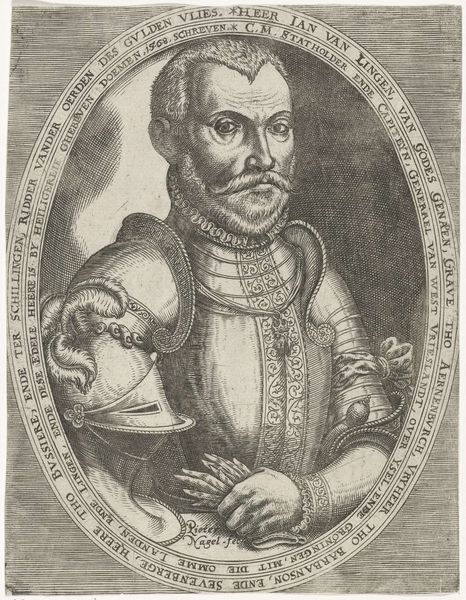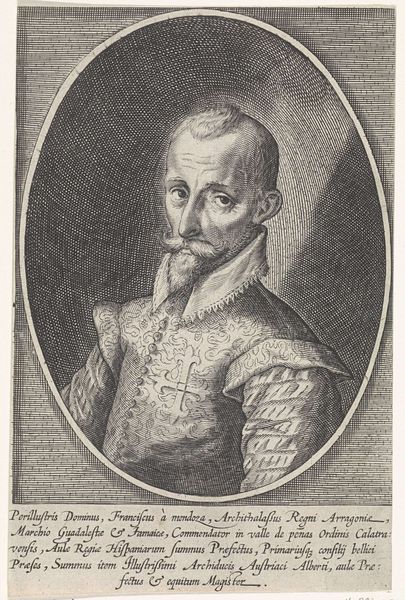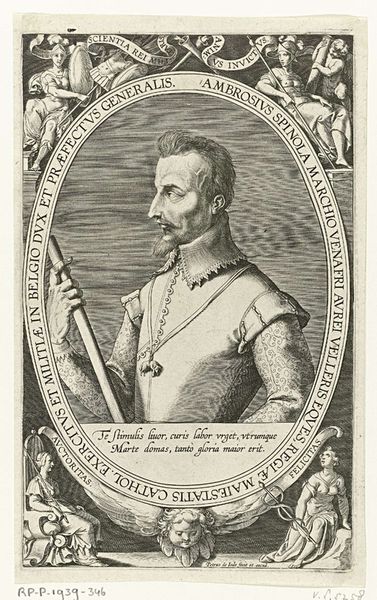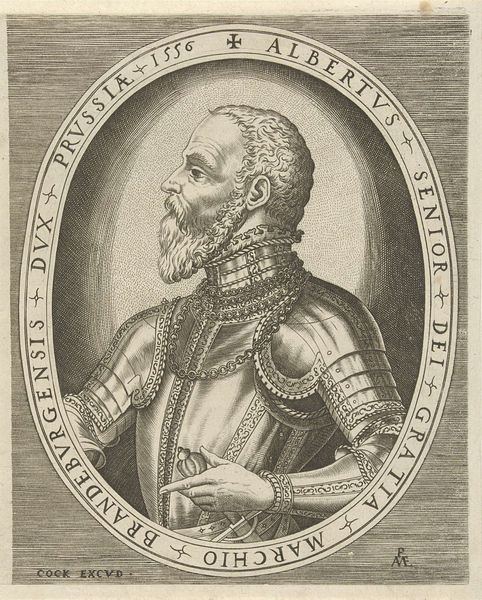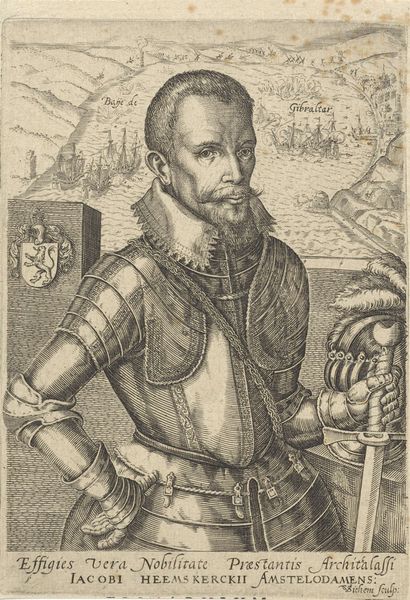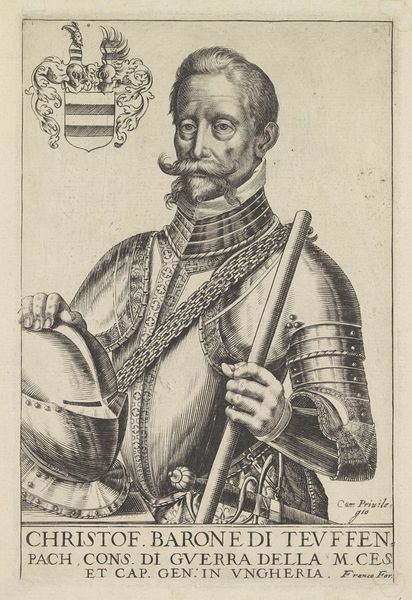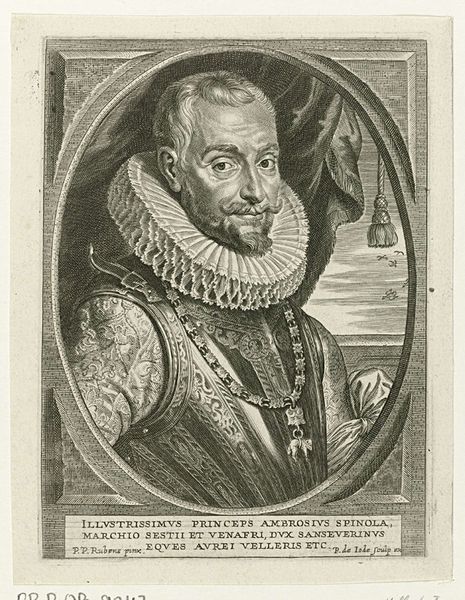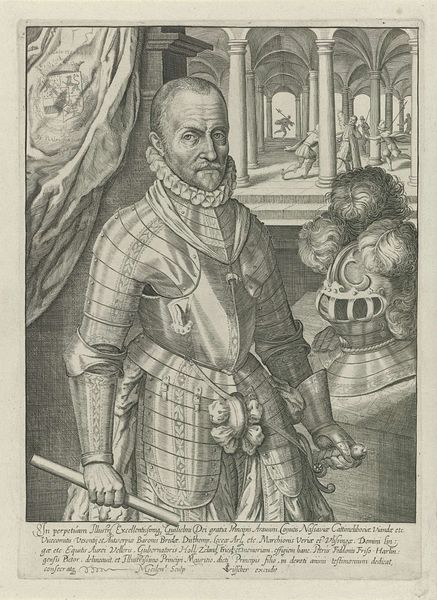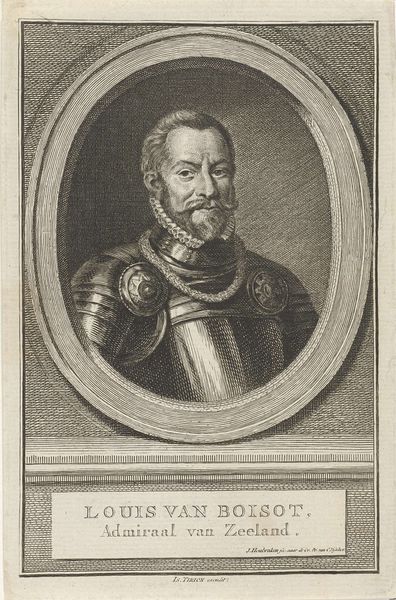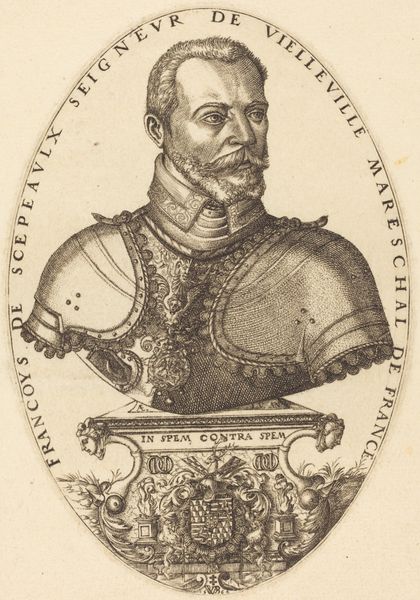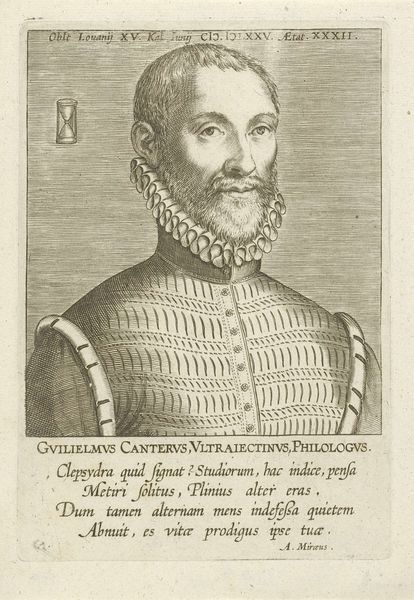
print, engraving
#
portrait
# print
#
11_renaissance
#
geometric
#
history-painting
#
northern-renaissance
#
engraving
Dimensions: height 112 mm, width 89 mm
Copyright: Rijks Museum: Open Domain
This portrait of Willem Bloys van Treslong was made by Wierix around the turn of the 17th century using engraving. Look closely, and you'll see that the image is constructed entirely from tiny lines incised into a copper plate. This was a highly skilled, laborious process, requiring years of training to master. Each line had to be carefully planned to create the illusion of tone and texture. The quality of line and accuracy in the engraving is crucial. See how the density of lines creates the shadows and form in van Treslong’s face and clothing. Wierix also skillfully used hatching to create the watery atmosphere, ship, and map of the harbor in the background. Engraving was not just a technique, but a vital tool of communication. It allowed images to be reproduced and disseminated widely, shaping public opinion and immortalizing important figures like van Treslong. By valuing both artistry and function, we can appreciate how printmaking blurred boundaries between art, craft, and commerce in the early modern world.
Comments
No comments
Be the first to comment and join the conversation on the ultimate creative platform.
